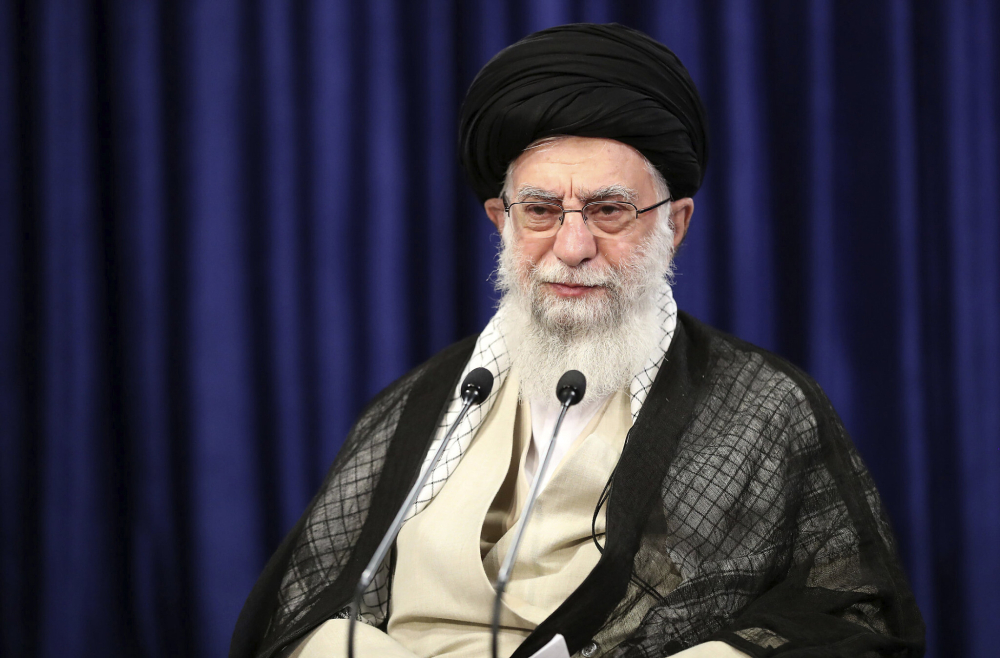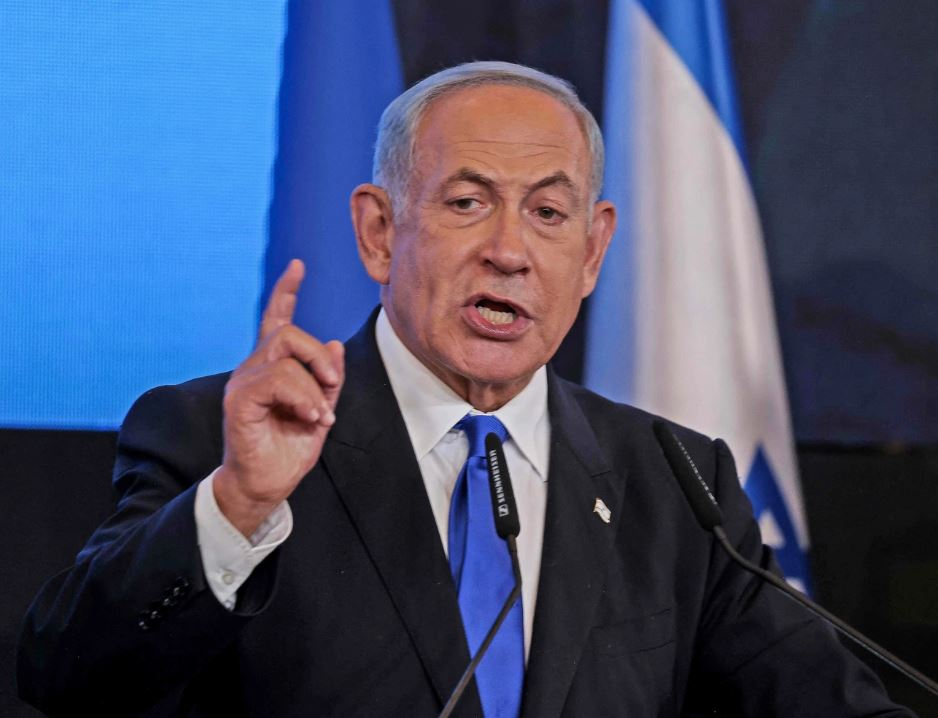Israel-Iran old friends turned enemies
We use Google Cloud Translation Services. Google requires we provide the following disclaimer relating to use of this service:
This service may contain translations powered by Google. Google disclaims all warranties related to the translations, expressed or implied, including any warranties of accuracy, reliability, and any implied warranties of merchantability, fitness for a particular purpose, and noninfringement.


Iran has been linked to the troubled West Asia region due to the ongoing war between Israel and Hamas. Iran launched more than 300 drone and missile attacks on Israel on Saturday, adding to the security challenges in the region. The impact of every activity happening in West Asia is not limited to that region.


With Iran's direct attack, the interest of Nepalis in Israel and nearby Jordan, Lebanon, Syria and Egypt has also started to increase. The Nepali government has asked the Nepali Embassy in Israel and other countries to be active.
Iran attacked Israel accusing Israel of attacking its consulate general in Syria. Iran claims that it attacked Israel in accordance with its right to self-determination after an attack on its sovereignty. Israel has not responded to the attack. It is mentioned that 16 people were killed in the attack on the Consulate General in Damascus, Syria, on March 1. In which 7 people of the Islamic Revolutionary Guard Corps, including a journalist, were killed. The Guard Corps has been looking after Iran's external security affairs in West Asia.
After Iran's attack, the meeting chaired by Prime Minister Benjamin Netanyahu in Tel Aviv has decided to "respond at the appropriate time". As the world's geopolitics and economy will be connected to West Asia, it seems difficult to predict how the current crisis situation will progress. The Secretary General of the United Nations, Antonio Guterres, said that the world does not want war and has asked to solve the problem through dialogue.
West Asia became turbulent after Hamas rebels attacked Israel on October 20. Ten Nepalese youths were killed in the same attack. A young Bipin Joshi is still in the custody of Hamas. Since then, more than 33,800 civilians have been killed when Israel attacked the Hamas rebels in Gaza. Many were injured. The Israeli Defense Force (IDF) along with other allied countries have destroyed 99 percent of Iranian missiles and drones. Israel claims to have destroyed 170 drones and cruise missiles. But the IDF said that 12 people were injured due to some 110 ballistic missiles.
Iran and Israel were more active in proxy wars. But this time, Iran is directly facing Israel.
Geopolitical expert and retired superintendent Poorna Silwal believes that the activities going on in West Asia will directly affect Nepali people and should be taken seriously.

It seems that the war will stop due to the immediate election in America and Israel will attack at the right time. But later, if Israel attacks Iran and the war escalates, there will be a problem in that region," he remarked. "Because of this, the Nepalis in West Asia may also be affected. Earlier in the Red Sea, the Houthis seized ships carrying supplies and oil. Now it is heard that the army of Iran has done it. If that happens, there will be problems in our economy.'
The rivalry between Iran and Israel in West Asia has been going on for 50 years. West Asia has always been in turmoil due to the continuous proxy war between Israel and Iran under the US camp. Iran and Israel are not neighbors. But Iran, along with its allies, has been attacking Israel, which is trying to strengthen its grip on the region with American support.
Hamas rebels in the Gaza Strip, Hezbollah in Lebanon and Houthi rebels in Yemen are Israel's main enemies. Iran, which has good relations with all these groups, has been providing them with the necessary tools and resources. Israel accuses Iran of providing drones, weapons, training and all other support used by Hamas rebels when they attacked Israel on October 7 (Azoz 20). Since then, Lebanon's armed political party Hezbollah has been in constant conflict with Israeli forces. Due to which West Asia is turbulent.
In addition, the Houthis are also attacking from Yemen, centering on Israel. While those attacks are being carried out with the help of Iran, especially the US and Western countries are helping Israel. Russia, Turkey, China and other countries are with Iran. Israel has been attacking Iran's strategic centers. Israel is attacking Iran by targeting its uranium centers and nuclear weapons development industries.
With Iran's attack on Israel, Western countries including the US and Australia have issued statements in favor of Israel. Saudi Arabia, which is an important and strategic country in West Asia, said that it should stop the war and try to find a solution through negotiations. After Iran's attack, Nepal and India issued statements calling for a solution through diplomacy and dialogue.
Iran and Israel, enemies for more than 50 years, were once the closest friends in West Asia. When Israel's neighbors and other Muslim countries in West Asia did not recognize the Jews as a state, Tehran recognized Israel as a state. Iran is the second Muslim country after Turkey to recognize Israel as a separate country.
Before the new regime in Iran in 1989, relations with Israel were strong and cordial. Before that, Iran was ruled by Pahlavi Shah kings. At that time there was a good relationship between the US and the Shahs. Israel used to help Iran in fields such as technology, while Iran used to send fuel to Israel.
The 1978–79 uprising ended the monarchy and ushered in the Republic of Iran under the leadership of Ayatollah Ruhollah Khomeini. Relations with Israel soured after Khomeini, the religious guru who led the movement against the king, came to power. In West Asia, Khomeini promoted relations with the Muslim religion at the center. That started the tension with Israel. Since then, relations between Khomeini-led Iran and the US have not been good. Because Israel and the US were close friends, Iran and Israel became enemies. After the US killed Iranian Major General Qassem Soleimani in a drone attack in Baghdad, the capital of Iraq in 2020, the conflict between the American camp and the Iranian camp has continued in West Asia.
Lately, the geopolitical environment of West Asia has started to change. With the support of Russia and China, Iran wants to become stronger in the region by advancing its fellow travelers. China, the second largest economy, has also expressed its interest in the geopolitics of West Asia. The long-standing hostility between Iran and Saudi Arabia, mediated by China, has become another.
The role of Saudi Arabia, which is close to America and the West, is beginning to change. On the other hand, India, which is close to Iran, has become closer to Israel. Since Narendra Modi came to power in 2014, he has become close to Israeli Prime Minister Netanyahu. But 2024 At the beginning of
, Ethiopia, Egypt, Iran, Saudi Arabia and UAE have become members of BRICS, an international organization consisting of India, Brazil, Russia, China and South Africa. Which has given a new wave to the geopolitics of West Asia.
'Recently, China's role in that area has increased. When Iran is in trouble, Russia is also supporting it," says Chandradev Bhatt, an expert in geopolitics. According to him, until the problem between Israel and Palestine is solved, there will be problems in West Asia. In 1947, the United Nations proposed the creation of two countries between Israel and Palestine. But so far, the proposal has not moved forward. Although there have been initiatives from time to time, the work of building two states has not been successful due to the obstacles of various leaders and parties, sometimes Israel and sometimes Palestine.

President Bill Clinton in 1993 tried to solve the problem by making the Oslo agreement with American mediation but could not move forward. So until now there is the same problem between Israel and Palestine. Due to the attack of Hamas rebels, who do not consider Israel as a country, the conflict in West Asia escalated on October 7, and now Iran is also directly involved.
When the world community is going through the Russia-Ukraine war, the internal conflict of gaining power in Sudan and other problems, some people also estimate that the world will not go to the third world war after Iran joins the Israel-Hamas war. Bhatt believes that the conflict can be seen more because of the 2024 election year. "In both Iran and Israel, the conflict has escalated because the leaders there are trying to present themselves as strong internally," he said. The confrontation between Israel, which has the support of the American and Western countries, and Iran, which has the support of Russian President Vladimir Putin and Chinese President Xi Jinping, does not seem to end immediately.
प्रकाशित : वैशाख ५, २०८१ १०:५९

 २९.१२°C काठमाडौं
२९.१२°C काठमाडौं

















